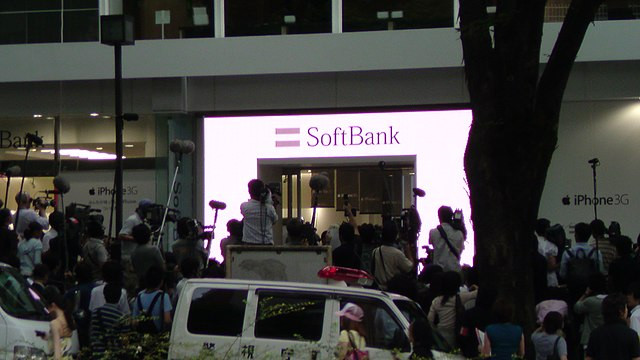SoftBank's ambitious plan to develop a cutting-edge artificial intelligence (AI) chip in collaboration with Intel has collapsed, marking a significant setback in the Japanese tech giant's efforts to challenge Nvidia's dominance in the AI chip market. The Financial Times first reported that the partnership faltered after Intel struggled to meet SoftBank's stringent requirements for production volume and speed, leading SoftBank to shift its focus to Taiwan Semiconductor Manufacturing Co. (TSMC), the world's largest contract chipmaker.
The dissolution of the partnership with Intel comes at a critical time for the U.S. chipmaker, which has been grappling with financial challenges and is in the midst of implementing drastic cost-cutting measures, including layoffs affecting thousands of workers. These financial difficulties likely contributed to Intel's inability to fulfill SoftBank's demands, according to sources familiar with the matter.
Intel's struggles are a stark contrast to SoftBank's aggressive strategy under the leadership of CEO Masayoshi Son, who is determined to place his company at the forefront of the AI revolution. Son had envisioned leveraging Intel's U.S.-based foundries to manufacture the AI chips, potentially tapping into funding from the Biden administration's Chips Act, which aims to bolster domestic semiconductor production. However, with Intel falling short of expectations, SoftBank has had to reassess its strategy.
"SoftBank has blamed Intel for the collapse of the talks, claiming the chipmaker was incapable of meeting its demands for volume and speed," the Financial Times reported, citing people familiar with the negotiations. The failed collaboration underscores the significant challenges that even the most established tech companies face in the highly competitive and rapidly evolving semiconductor industry.
Despite the setback, SoftBank remains undeterred in its quest to develop an AI chip that could rival Nvidia's market-leading products. The company is now in discussions with TSMC, a move that signals SoftBank's commitment to advancing its AI ambitions. However, TSMC is reportedly struggling to meet the demands of its existing customers, including Nvidia, which could complicate SoftBank's plans.
The breakdown of talks with Intel represents a missed opportunity for both companies. For Intel, the partnership with SoftBank could have provided a much-needed boost as it attempts to regain its footing in the global chipmaking arena. Intel CEO Pat Gelsinger has been leading an aggressive campaign to restore the company's position at the forefront of semiconductor manufacturing, backed by nearly $20 billion in U.S. government funding. But with mounting challenges, including a $7 billion operating loss for its manufacturing business and recent layoffs, Intel's ability to secure and execute major new projects has been called into question.
Meanwhile, SoftBank is pressing forward with its vision to become a major player in the AI space. Son has been actively pitching his AI chip concept to some of the world's largest tech companies, including Google and Meta, in an effort to secure support and financing for the venture. While no agreements have been finalized, the potential for significant investment from these tech giants remains a possibility.
The financial implications of SoftBank's AI chip ambitions are substantial. The cost of developing and producing a new AI chip could run into the tens of billions of dollars, according to sources close to the company. To fund this ambitious project, Son has reportedly reached out to investors in Saudi Arabia and the United Arab Emirates, though no concrete deals have been struck.
The stakes are high for SoftBank as it navigates this complex and costly endeavor. The AI chip market is currently dominated by Nvidia, whose AI data center chips are the industry standard, bolstered by its extensive software platform, CUDA. Critics have raised concerns that SoftBank's entry into chip production could strain its relationship with Nvidia, a key client of Arm, which SoftBank owns. However, those close to Son believe the potential rewards outweigh the risks, particularly if SoftBank can establish itself as a credible competitor in the AI chip market.
As SoftBank continues its discussions with TSMC, the future of its AI chip project remains uncertain. TSMC's existing commitments and capacity constraints could pose significant hurdles, and SoftBank may need to seek additional partners to bring its vision to fruition. The evolving situation highlights the challenges of breaking into a market dominated by established players like Nvidia, but it also underscores the determination of companies like SoftBank to push the boundaries of technology and innovation.
In the meantime, Intel, which had been a cornerstone investor in Arm's initial public offering last September, revealed that it has sold its entire stake in the UK chip designer during the second quarter of this year, raising about $150 million. This move, coupled with the suspension of its dividend and the sharp decline in its market capitalization, suggests that Intel is focused on shoring up its financial position as it navigates an increasingly competitive and challenging market landscape.






